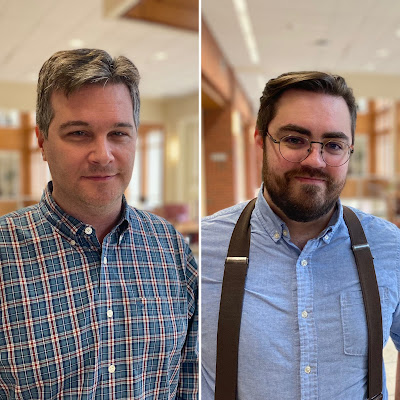Moussa Awarded $1M NIH Grant to Design Algorithms for Studying Cancer Initiation
 |
The study, titled “Computational approaches to the mechanistic elucidation of the serrated pathway of human colon carcinogenesis,” aims to unravel the mechanisms driving the serrated pathway of human colon carcinogenesis using computational methods that help explain how colon cancer develops.
“This research is essential due to the intricacies of colon cancer initiation. Colon cancer often originates through various mechanisms, including mutations and genetic changes that lead to abnormal lesions known as precursor lesions,” Moussa said. “Some of these lesions, such as hyperplastic polyps, are well understood and pose minimal risk. However, others, like serrated lesions, remain less understood and require in-depth investigation.”
Serrated lesions are characterized by their unique microscopic appearance, displaying a distinctive saw-toothed pattern, Moussa says. Her research develops computational methods to model the progression of such lesions into tumors, a process known as carcinogenesis. By examining RNA molecules in these regions and identifying specific signatures, she hopes to shed light on how these lesions evolve, ultimately leading to cancer.
The research will use spatial transcriptomics, a technology that studies complex cellular environments and that will provide molecular profiles of individual cells within a tissue context. The technology allows scientists to better understand how cells interact within the tissue, their spatial arrangement and their role in cancer development, Moussa says. “By data generated by spatial transcriptomics, we can identify complex patterns and signatures associated with evolving lesions.”
Despite advancements in colorectal cancer prevention, it remains the second leading cause of cancer-related deaths in the United States. Moussa notes that the alternative serrated pathway of colon carcinogenesis, characterized by serrated lesions, has been underexplored due to its complexity and the lack of comprehensive data.
“The research project not only advances an understanding of colon cancer but also has the potential to impact the study of other cancer types,” Moussa said.
About the project: The agreement, from August 1, 2023, to July 31, 2028, is funded by the National Institutes of Health and administered by the National Cancer Institute. The project, titled “Computational approaches to the mechanistic elucidation of the serrated pathway of human colon carcinogenesis,” receives $198,721 annually under Award No. 1K25CA270079-01A1.
About OU Engineering: The Gallogly College of Engineering at the University of Oklahoma is composed of seven schools: Aerospace and Mechanical Engineering; Sustainable Chemical, Biological and Materials Engineering; Civil Engineering and Environmental Science; Computer Science; Electrical and Computer Engineering; Industrial and System Engineering; and the Stephenson School of Biomedical Engineering. With more than 175 faculty members, we are committed to providing a hands-on, real-world approach for our students.
About the University of Oklahoma: The University of Oklahoma, a public research university located in Norman, Oklahoma, is a leading institution for academic and research excellence. With a commitment to interdisciplinary collaboration and cutting-edge research, the university continues to make significant contributions to various fields.
By Lorene A. Roberson, Gallogly College of Engineering


